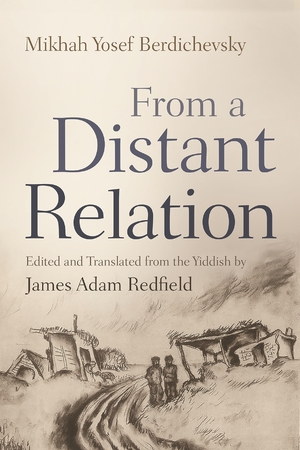"This essentially static 'novel, 'describes in thickly accreting detail the dutiful observance of Shabbat by the family of a humble peddler (Feivel) who live in a Polish shtetl in the early 1930s. Erlich's portrayal of a Jewish culture's submissive relationship to the nearby Gentile majority clearly enough adumbrates the coming Holocaust, but deliberately mutes its incipient drama in favor of an insistently reverent emphasis on the sustaining power of conscientiously performed ritual. The documentary result (illustrated with vivid period photographs and including a helpful glossary) is both less and more than fiction: a fervent declaration of faith steeped in carefully reproduced reality."—Kirkus Reviews
Description
Set in the Polish-Jewish shtetl of Wolbrom in the 1930s where Josef Erlich spent his youth, his account of how the character Feivel and his family observe the Sabbath has the flavor of a documentary narrative rather than a novel in the strictest sense.
The author describes in intricate detail the religious observance and folkways of this holiest of days from the order of communal prayer to the preparation of the meals. A rich archive for readers unfamiliar with the Orthodox religious tradition as it was practiced in Europe for centuries and continues to be practiced by pious descendants
today-this book, writes Erlich, is for a generation wishing to know something of this enduring folk culture.
About the Author
Josef Erlich is the author of Tuv Haaretz (The Best of the Land) and Harariim (The Mountain Folk).
Hana Wirth-Nesher is chair of the English Department, Tel Aviv University.
Related Interest
6 x 8.25, 208 pages, 8 black and white illustrations
June 1999



